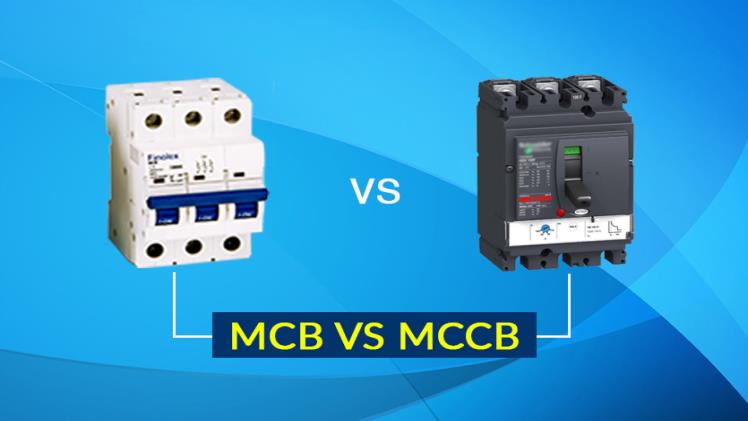In every electrical system, safety and protection are of paramount importance. HRC fuses, MCCBs, and MCBs are the essential components for electrical protection that help provide smooth functioning and longevity to any electrical installation.
Let us delve into the significance of HRC fuses, MCCBs, and MCBs and understand how they contribute to safeguarding electrical systems.
HRC Fuses (High Rupturing Capacity Fuses)
HRC fuses are essential to any electrical system to protect high-power applications and industrial settings. These fuses handle high fault currents and protect against overcurrents and short circuits. It interrupts or breaks excessive current flow without damaging the electrical system.
With its high rupturing capacity, it can safely handle and interrupt high fault currents without damaging equipment. These fuses consist of a fuse element made of copper or silver enclosed in a ceramic or glass container.
The primary function of an HRC fuse is to provide reliable protection against excessive current. If any fault occurs due to overloading or a short circuit, the current flowing through the circuit exceeds the rated current capacity.
In this case, the fault current generates excessive heat, which melts the fuse element inside the HRC fuse. This process interrupts the circuit and prevents further damage.
Advantages of HRC Fuses:
- It has a high rupturing capacity.
- It provides reliable protection against overcurrents.
- It prevents fire hazards.
- It offers a wide range of current ratings.
- Easy Replacement.
- It is suitable for high-power applications.
MCBs (Miniature Circuit Breakers)
MCBs, or miniature circuit breakers, are compact circuit breakers that provide electrical protection for residential, commercial, and light industrial applications. These protect the applications against overcurrent and short circuits at low to moderate currents. These compact, standardised designs allow them to fit into any electrical distribution board or consumer unit.
MCBs have a trip mechanism with a thermal and a magnetic element. The thermal element protects against overloads, which occur when the current exceeds the rated capacity of the circuit, and the magnetic element of an MCB responds to short circuits, which are faults that result in a sudden and significant increase in current flow.
Advantages of MCBs:
- These are compact and have a standardised design.
- They provide reliable protection against overcurrents.
- Due to their magnetic trip mechanism, they quickly respond to short circuits.
- These are designed for easy operation and maintenance.
- MCBs offer adjustable tripping settings.
MCCBs (Molded Case Circuit Breakers)
MCCBs are circuit breakers that protect against overcurrents, short circuits, and even earth faults. They consist of a trip mechanism that includes thermal and magnetic elements, the same as MCBs. The main difference between MCBs and MCCBs is that MCBs are compact circuit breakers suitable for low to moderate-current applications. At the same time, MCCBs are larger and designed to handle higher fault currents.
Conclusion
HRC fuses, MCBs, and MCCBs are essential to safeguard electrical systems. Check out IndoAsian for a wide range of such products to enhance the safety, efficiency, and convenience of residential, commercial, and industrial installations.

